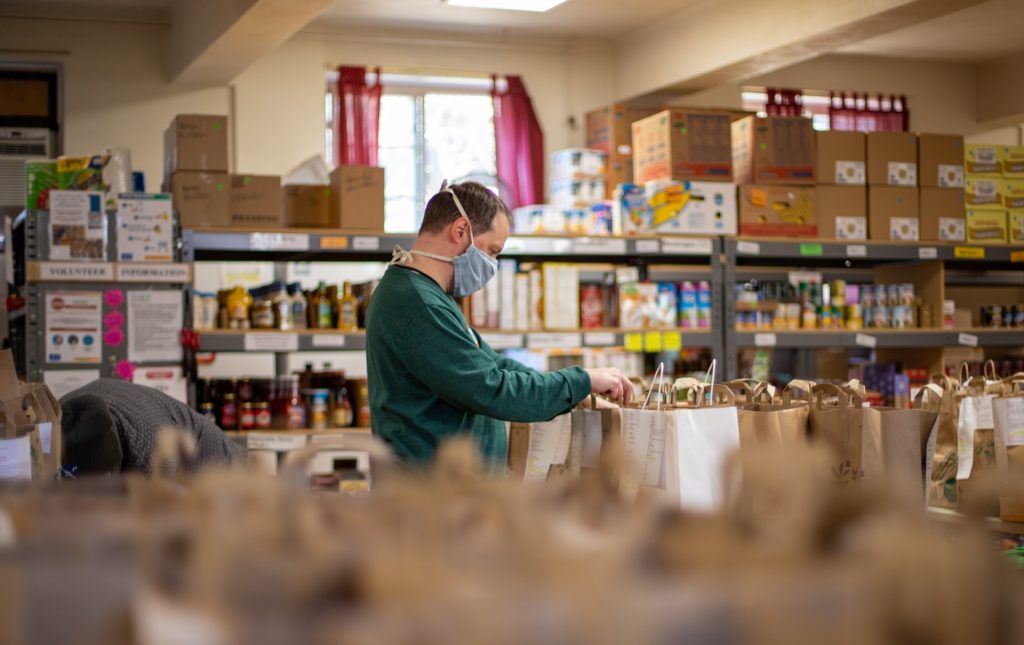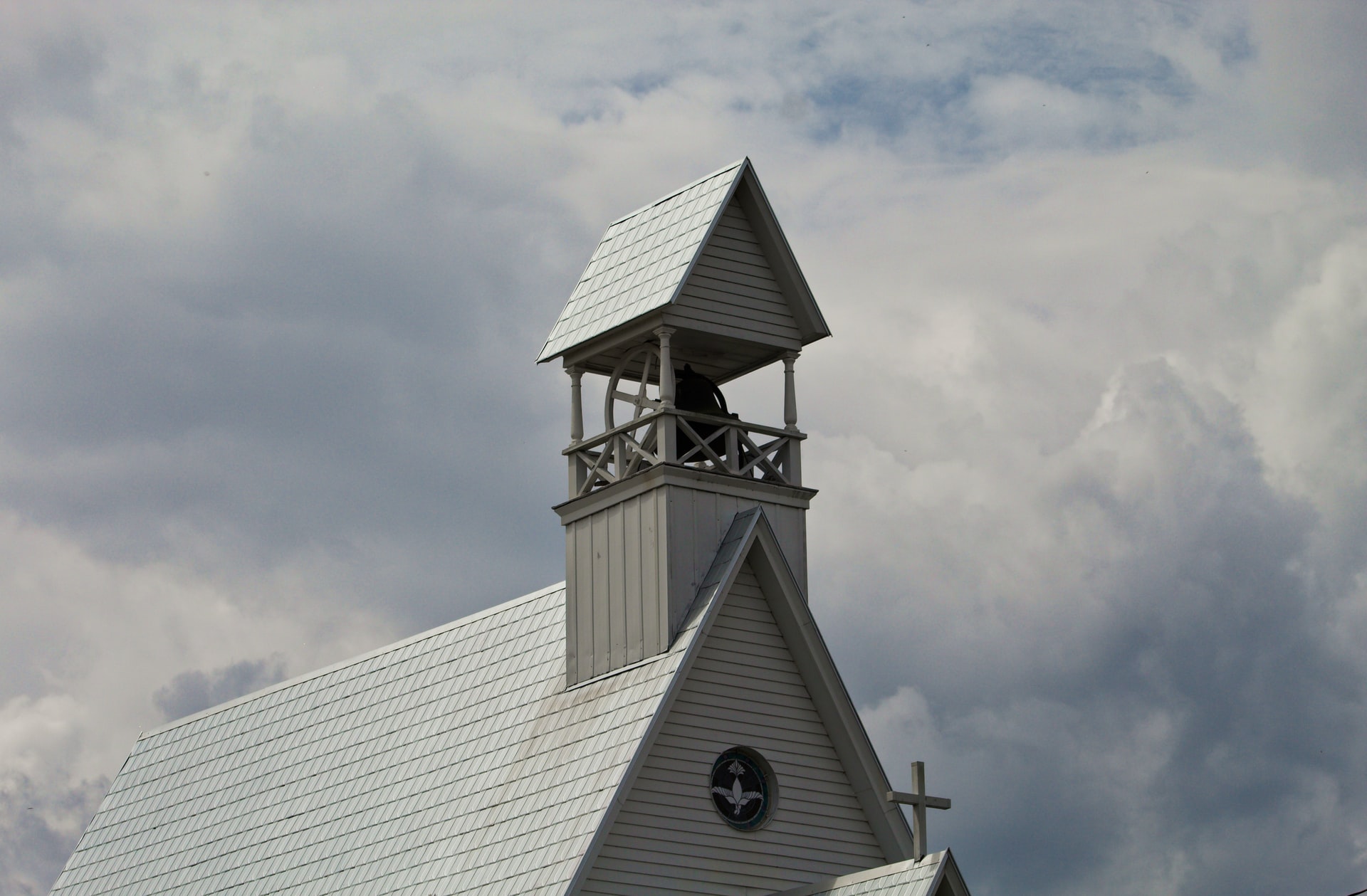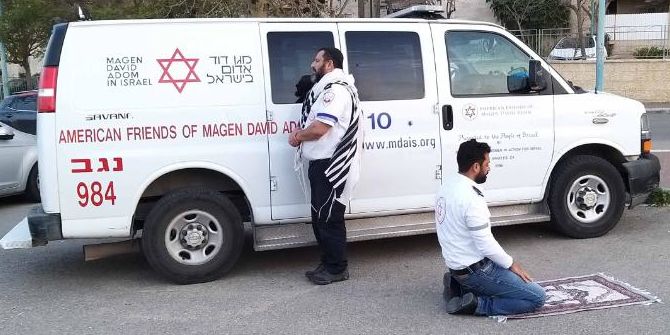2020 was a year of disruption, changing the way we behave across all parts of our lives. LSE Religion and Global Society has conducted research on interfaith initiatives amidst the pandemic, focusing on the behaviours and attitudes of young Londoners. Based on the report written by RGS, Dr Austin Tiffany writes about young people’s involvement in social action and what this means for the interfaith sector moving forward.

Interfaith social action is not new, but our recent research in light of COVID-19 has shown that it has taken on a new prominence. In RGS’s recent report, Interfaith Beyond the Pandemic, our research found that the move online has propelled social action to the forefront of the interfaith agenda through the growth of new informal interfaith organisations, largely due to the initiatives and interests of young people. They are more likely to see interfaith collaboration as a vehicle for social action than for dialogue, which is reflective of their understanding of faith as defined more broadly by action rather than dogma. As a result, this stands in contrast to the more traditional conversation-based form of interfaith and has seemingly contributed to a troubling intergenerational divide in the interfaith sector.
COVID-19 and Social Action
While the COVID-19 pandemic caused widespread disruption, it also provided an opportunity. Young people utilised the digitisation of everyday life to create and/or join new youth-led interfaith networks, enabling them to create informal forums that value inclusivity and reflect the priorities of young people.
It has also allowed young people to focus on areas of paramount concern to them, namely social action and issues of justice. “Interfaith should not always be about religion,” one interviewee said, “it should be about, every year, what are the top five issues that young people are concerned about” (Muslim male). Although this quote raises further questions about young people’s understanding of “religion,” the focus on contemporary issues and action as a core part of their religious identity is clear. The pandemic offered the opportunity for young people to live out their faith in very practical ways. With many religious leaders busy moving services online, checking in on vulnerable members, and handling an influx of funerals, young people stepped in to provide direct support to those who were vulnerable, such as collecting and delivering food parcels to vulnerable populations.
Beyond Discussion: Justice and Interfaith in Everyday Life
For many young people in London, creating a better society through interfaith social action takes precedence over curated encounters and discussions to understand religious difference, largely because they are a generation that has grown up immersed in this difference. Furthermore, religious Londoners are more likely to be civically engaged, and our research shows that young and religious Londoners are keenly motivated by issues of justice. Many young people root their understanding of faith in social action and use interfaith as a positive force in facilitating that. As one interviewee said, “the way that I practice my Judaism is, a lot of it, social action, and also interfaith” (Jewish female). To them, this is a public display of faith.
Faith displayed by action is not a divergence of traditional religiosity. Many of the world’s religions have historically valued acts of kindness and service, ranging from tikkun olam in Judaism, the Common Good in Christianity, the Qur’anic term qist meaning fairness, or daya in Hinduism, meaning compassion. But what we appear to be seeing amongst younger people is a stronger emphasis on action and justice, rather than a weekly attendance at a place of worship. For young people, these ancient traditions of compassion, justice, and repairing the world are a powerful call to action in the present day. As one interviewee said, “faiths are able to bridge that divide between the people and power” to make a difference (Christian female).
Young people have grown up in a world shaped by the 2008 financial crash and a recovery that was vastly unequal, only to enter into the professional world in the middle of a pandemic and economic recession that have disproportionately impacted ethnic minorities and lower-skilled workers as well as those at the start of their careers. They are also inheriting a worsening environmental crisis. Statistically, young people are more concerned with inequality, racial justice, and the environment than older generations, and they want to address these issues through interfaith social action.
Whereas theological conversation largely defined interfaith in 20th century Britain, young people use action-based words like “solidarity” with the marginalised and “justice” to describe interfaith today. One interviewee compared the difference of his generation’s view of action with his elders. He explained that the elders “think locally [and] act globally,” raising money in London and sending it to communities abroad. However, he goes on, his generation wants to “think globally [and] act locally”: recognise global issues and focus on making a difference in his London community. (Muslim male)
The global march for racial justice, environmental justice, and economic equality are fuelled by youthful imagination and action, and that is particularly reflected in the new informal modes of interfaith. They are the forums where young people, to use the words of Rabbi Abraham Heschel, are praying with their feet to better their local areas. When discussing the Black Lives Matter protests, one interviewee reflected on her interfaith engagement and actions at that time, saying:
“So what can we do as people of faith and just people who want to do better? And a lot of us believe in the idea of equality as well coming from our religions, and saying, you know, the whole idea of caste, colour or creed, separating people is completely the wrong idea.” (Sikh female)
While issues of justice are never straightforward and contain myriad political complexities, our research shows that issues of justice and interfaith social action motivate young people to get involved in interfaith. The inclusion of young people in positions of leadership and proactively incorporating issues of justice in interfaith initiatives could mobilise greater youth involvement within traditional, more established interfaith structures. One interviewee remarked that, “we can all agree that there is no aspect of social affairs into which youth input would not be useful.” New online interfaith groups, spearheaded by young people, have provided young people the opportunities for leadership and the emphasis on action that they seek. So, it is no surprise these youth-led forums have flourished from the move online. But what does this mean for the sector as a whole?
Is Dialogue Dead?
Conversation-based dialogue was not generally attractive to our participants, nor was it seen as a solution to the social issues that concern young people. Yet, this shift towards action does not spell the end of youth-involvement in traditional forms of interfaith. In fact, young people acknowledged that achieving structural change and standing in solidarity with other faith groups relied on the relationships across religious difference that have already been built by their elders in formal, well-established structures. Our research has found that there is no appetite among young people to entirely separate from traditional interfaith bodies and initiatives, but there is a strong desire for them to be more inclusive and welcoming, not only of women, young people, and other faiths, but also of their ideas around social action and justice.
Ultimately, a form of interfaith that values social action and intergenerational involvement marks the way forward. Pope Francis, in his book about rebuilding society after the COVID-19 pandemic, writes that, “the future will be born from the conjunction of the young and the old” (2020, 58). Drawing on a text in the Book of Joel, a prophet in Jewish, Christian, and Islamic traditions, this intergenerational conjunction must marry the dreams of the older generation – in our case, a welcoming society built on robust interfaith relationships through intentional encounter, theological discussion, and friendly conversation – with the visions of the young and the dynamism of informal interfaith movements promoting solidarity for the less fortunate and calls for justice.
Note: This piece gives the views of the author, and not the position of the LSE Religion and Global Society blog, nor of the London School of Economics.






Hello,
My name is Reed Weiler, and I’m a recent college grad living in DC building towards a career in ethics. I’m currently working on producing a podcast episode on spirituality and social praxis as part of my internship with the Choose to be Curious Podcast (Lynnborton.com).
The show is a series of conversations about curiosity, as it appears in work and in life. I’m reaching out to see if you would be open to joining me in a conversation about spirituality and the ways in which spiritual awareness overlaps with the practice of curiosity, as well as the potential for spiritual awareness to contribute to positive social and ethical change in the wake of the COVID-19 pandemic.
I was drawn to your work after reading your “Praying with their feet” article published on the LSE website about youth and interfaith action. I personally experienced somewhat of a spiritual awakening during COVID isolation and am passionate about exploring this dynamic more fully through conversation with people like yourself.
Let me know if making an appearance on the podcast interests you, and at the very least, if you’d be willing to simply chat with me about the subject.
All the best,
Reed Weiler
Hi Reed,
Please contact us at faithcentre.rgs@lse.ac.uk with this enquiry and we’ll see what we can do!
Many thanks,
RGS